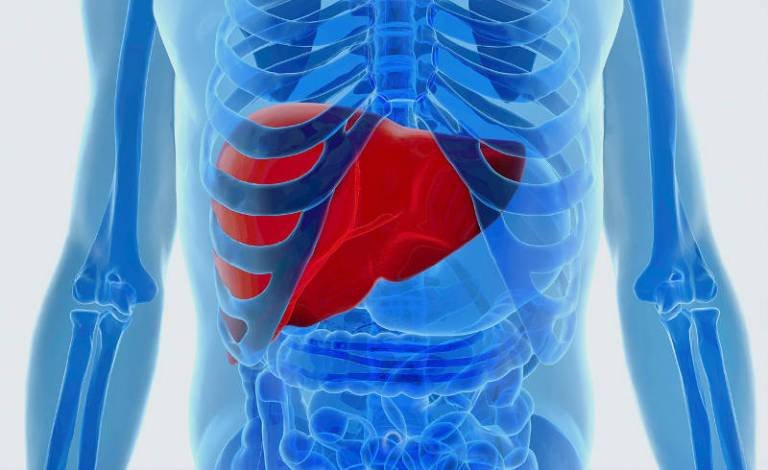Shanghai Biopharma Presents Phase I Data for Novel CAR-T in Advanced Liver Cancer
18 April 2023 | Tuesday | News

Image Source : Public Domain
Early results indicate that C-CAR031 is well tolerated with promising anti-tumor activity seen and objective responses in several patients to date, including 3 patients with confirmed partial responses, 2 with stable disease and 1 with progressive disease per both RECIST v1.1 and mRECIST criteria. The clinical responses of the patients who achieved partial responses are ongoing up to the data cutoff date.
C-CAR031 is an autologous GPC3-directed second generation armored CAR-T with affinity-tuned single-chain variable fragment (scFv) to enhance its safety profile, based on a novel cell therapy designed by AstraZeneca (LSE/STO/Nasdaq:AZN) using their TGFβRII dominant negative armoring discovery platform.
To investigate the feasibility, safety and initial efficacy of C-CAR301 in hepatocellular carcinoma (HCC), Shanghai Cellular Bio is currently conducting a Phase I FIH clinical study (NCT05155189) in advanced HCC in The First Affiliated Hospital, Zhejiang University School of Medicine in Hangzhou, China.
Methods: This FIH, open-label dose escalation trial employs an accelerated dose titration plus i3+3 design. Histologically confirmed GPC3+ advanced HCC patients (pts) who failed systemic treatments received a single-dose i.v. infusion of C-CAR031 following standard lymphodepletion. The primary objective was to assess the safety and tolerability. Adverse events (AEs) were graded using CTCAE 5.0, and cytokine release syndrome (CRS) / immune effector cell-associated neurotoxicity syndrome (ICANS) were graded according to ASTCT 2019 criteria.
Results: As of March 2nd, 2023, seven patients received two dose levels (DL1, n=1; DL2, n=6) of C-CAR031. The median number of prior lines of therapies was 4 (range 1-6). The median follow-up was 77 (67-213) days. Seven patients with ≥28 days' follow-up were eligible for safety evaluation. Good safety profile was observed at explored dose levels. 86% (6/7) patients experienced Gr1/2 CRS; no Dose Limiting Toxicities (DLT) or ICANS was observed. The ≥Gr3 non-hematologic product-related AE included transient Gr3 AST elevation (2/7, 28%), hypokalemia (1/7, 14%), and abdominal pain (1/7,14%). 5/6 (83%) patients at DL2 showed tumor shrinkage post C-CAR031 treatment (median -41.4% range -3.4%~ - 94.4%). Best clinical responses at DL2 included 3 confirmed PR, 2 SD and 1 PD per both RECIST v1.1 and mRECIST. The clinical responses of the patients who achieved PR are ongoing up to the cutoff date. C-CAR031 showed a robust cellular kinetic profile. CAR-T cells were detectable in blood of all patients in the last follow-up.
Conclusion: In this FIH study, C-CAR031 is well tolerated and shows promising anti-tumor activity. Enrollment is ongoing to confirm initial results.
Most Read
- Innovations In Magnetic Resonance Imaging Introduced By United Imaging
- Management of Relapsed/Refractory Multiple Myeloma
- 2025 Drug Approvals, Decoded: What Every Biopharma Leader Needs to Know
- BioPharma Manufacturing Resilience: Lessons From Capacity Expansion and Supply Chain Resets from 2025
- APAC Biopharma Review 2025: Innovation, Investment, and Influence on the Global Stage
- Top 25 Biotech Innovations Redefining Health And Planet In 2025
- How Health Systems Are Reshaping Drug Adoption, Partner Models, and Market Access in 2026
- The New AI Gold Rush: Western Pharma’s Billion-Dollar Bet on Chinese Biotech
- Single-Use Systems Are Rewiring Biopharma Manufacturing
- The State of Biotech and Life Science Jobs in Asia Pacific – 2025
- Asia-Pacific Leads the Charge: Latest Global BioSupplier Technologies of 2025
- Invisible Threats, Visible Risks: How the Nitrosamine Crisis Reshaped Asia’s Pharmaceutical Quality Landscape
Bio Jobs
- The State of Biotech and Life Science Jobs in Asia Pacific – 2025
- Avantor’s New CEO Ligner Aims to Unlock Global Potential and Deliver Shareholder Value
- AstraZeneca Commits $50 Billion to U.S. Expansion by 2030 in Biggest-Ever Global Investment
- Thermo Fisher, SAMRC, and South Africa’s Department of Science and Innovation Launch CATIR to Nurture Next-Gen Scientists
- Cube Biotech Appoints Former Sartorius CEO Dr. Joachim Kreuzburg to Board of Directors
- FDA’s AI Transition Marks a Turning Point in Drug Review: Industry Faces Pressure to Adapt Amid 20% Workforce Cut
- WuXi XDC Completes Mechanical Build of Singapore Bioconjugate Manufacturing Hub
News
Editor Picks











